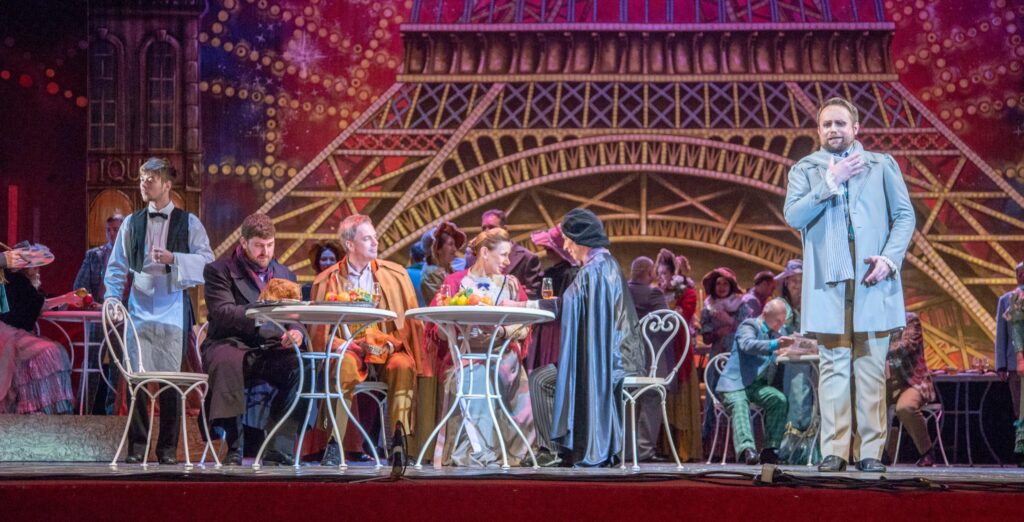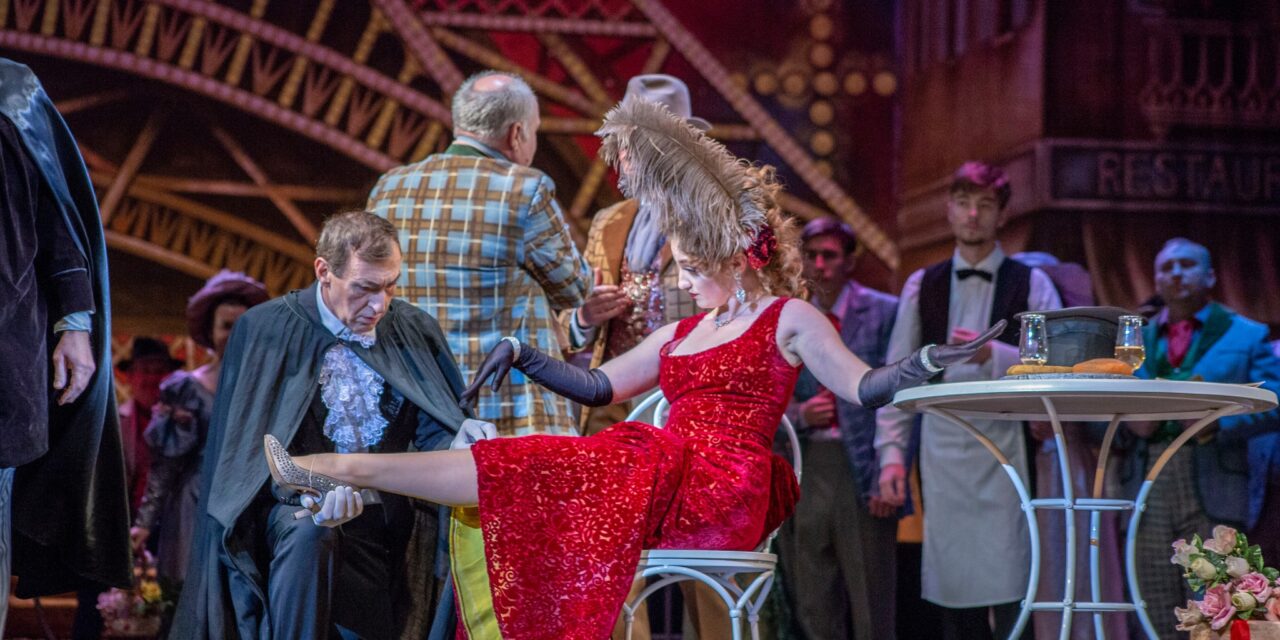
23 February
Puccini’s perennial favourite arrived in Cheltenham last night for a single performance as part of a two-month tour of the UK by the Ukrainian National Opera. The tour is an ambitious undertaking: three popular operas, a 30-piece orchestra and full chorus, visiting over 40 towns and cities in the UK. Despite the inevitable demands of travel, the company showed no signs of fatigue. The principal singers were in robust vocal health and every aspect of the production felt fresh and energetic. Frank Matcham’s sumptuous nineteenth century theatre, opened five years before the opera’s premier in 1896, was the perfect venue.
La Bohème is famous for its wondrous overlapping melodies, narrative interest taking second place to the tingle factor. Rodolpho and Mimi meet for the first time in a cold Paris attic. Within fifteen minutes they have declared undying love. The anger that leads to their separation is unseen, taking place offstage, referenced later in Mimi’s heart-rending plea to Rodolpho’s friend – O buon Marcello, aiuto!.
But what the opera lacks in manifest intrigue is more than compensated for by the soaring vocal lines and glorious instrumentation. To take one example, the quartet Addio dolce svegliare alla mattina! tells a story as powerfully as any stage action. The two couples sing in complex harmony, the idealistic Rodolpho and Mimi declaring undying passion, in stark contrast to Musetta and Marcello, wrestling with the complications of their conflict-ridden partnership.
La Bohème works because the music convinces and on Friday night in Cheltenham, voices and orchestra were both outstanding. Roman Korentsvit as Rodolpho has a powerful tenor, moving with ease from the upper to the lower register, heart breaking in his reprise of Che Gelida Manina. Olena Dolhina is an ideal Mimi, physically modest and fragile but with an apparently effortless range and volume. The one weakness of this happy musical pairing is a tendency to be declamatory rather than amatory. There is an absence of chemistry between them, so that while it is easy to believe in each as individuals, it is hard to believe in their mutual love. Not so with Marcello and Musetta. Of course, Musetta has a meatier role, flirtatious, kind, provocative and inventive. As the supporting woman who doesn’t have to die at the end she is allowed to have a more interesting character, and this is exploited to the full by Sofia Soroka.
The director is Karyna Klymentovska and she has opted for a traditional design of painted flats in muted greys and browns. This works as an effective evocation of the Parisian backdrop. In contrast, the brightly coloured mid-Victorian costumes of the chorus hint at a desperate energy and thirst for enjoyment despite the relentless poverty of their lives. The scenes among the men have a jaunty comedy that works well.
At last night’s curtain call the conductor Ihor Puchkov arrived on stage. As the applause swelled, the cast moved aside to reveal a huge Ukrainian flag. There followed a powerful rendition of their country’s national anthem. It was an emotional conclusion to an emotional evening, taking place on the eve of the anniversary of the invasion. For once the standing ovation of the audience was heartfelt and sincere.
★★★★☆ Ros Carne, 24 February 2024
Photo credit: Amande Concerts


